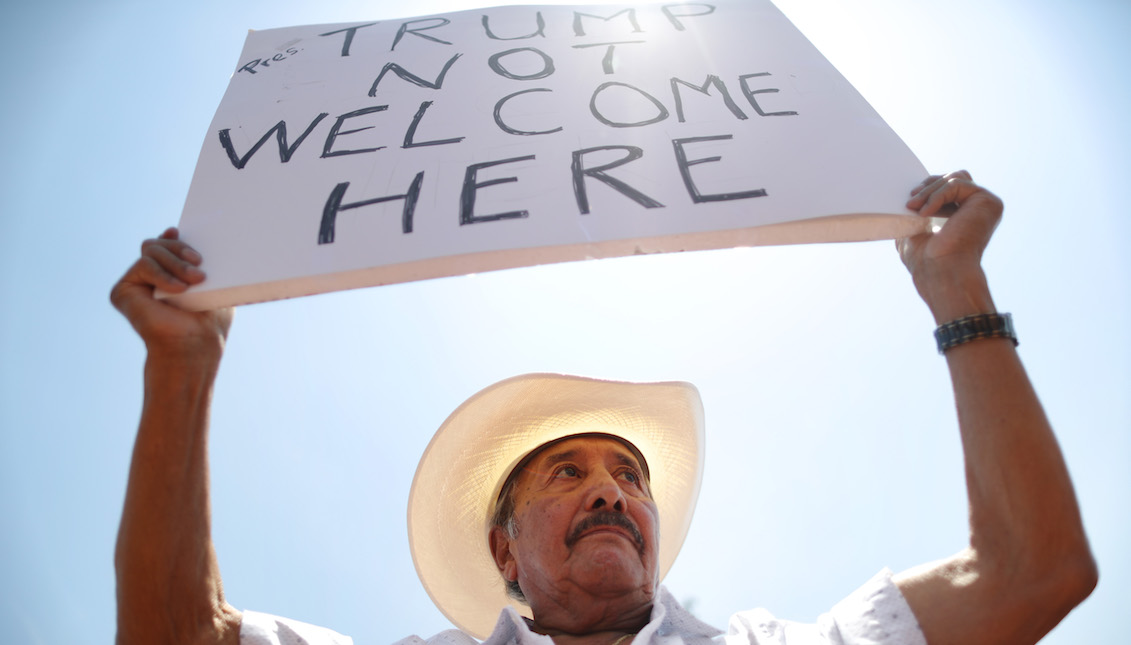
Mass shootings and politics: the two faces of violence
The tragedy of hate crimes in the United States is uncontrollable, and nothing is more effective when it comes to politics than a circumstance where everyone…
Mourning in the United States seems to be a matter of debate. While thousands of citizens are mourning over the tragedies in El Paso and Dayton, U.S. politics once again took center stage.
In less than 24 hours, 31 people died from mass shootings over the weekend, sustained in a reality frequently overlooked: the epidemic of white nationalism.
Bullet curtains in a shopping center were perpetrated by someone with the same modus operandi that has been repeated in the United States, in New Zealand, and in Norway, and which is advertised with a racist manifesto published online.
The target is always an immigrant community considered an "invader;” it is a term that might sound familiar because President Donald Trump uses the same adjective when it comes to campaigning.
After the events of the weekend, the president diverted the blame to video games and mental illnesses, bypassing the push for gun control nationwide or hateful rhetoric, two issues that have increased exponentially during his tenure.
Since his election as president of the United States, approximately 50 mass shootings have been reported, and one of the most thriving youth movements of recent times has grown in demanding gun control reform, particularly in response to the shooting of Marjory Stoneman Douglas School in Parkland, Florida, on February 14, 2018.
The conclusion is always the same: the country needs to change the laws on firearms control. And the presidential and congressional response also remains unchanging.
The role of lobbying organizations such as the National Rifle Association (NRA) in American politics seems to be always heavier than a death count that only climbs over the years.
And considering the $30 million given to Trump's campaign by the NRA, it's unlikely the president will do anything against the 2nd Amendment.
After the events in Florida, Trump suggested arming school teachers, shouted some ideas on red flag laws and did little else. The debate cooled and attention was diverted to other issues, such as the crisis at the border and the deportation of immigrants.
But the problem still remains, and last weekend's attacks were evidence of it.
"Mental illness and hate are the ones who pull the trigger," Trump told the cameras, "not the gun."
Although the president denounced racism and recognized "white supremacy," many seem to agree that it has been precisely his rhetoric that has given new impetus to hate crimes.
RELATED CONTENT
The National Public Radio reported on the analysis of Daryl Johnson, a former domestic terrorism analyst in the Department of Homeland Security, who during 2009 identified the rise of right-wing extremism in the country in response to the first president of color sitting in the White House.
Now, with a president who uses immigrants as scapegoats for all the evils in the country, this phenomenon seems to have the momentum that was missing.
"When you're a people in power, words do matter," Johnson told the media. "When you dehumanize your opponents, whether Democrats, the news, immigrants, people of faith, of different faiths, you’re running the risk of someone taking your words and acting upon it."
This argument has been particularly important for Democrats, especially those who compete for the nomination of the party in the presidential elections next year.
That is why the presidential visit to the areas affected by the tragedy in El Paso, Texas, and Dayton, Ohio, last Wednesday once again became a matter of politics when Democratic candidate and former El Paso Congressional Representative Beto O'Rourke and Congresswoman Veronica Escobar - current representative of El Paso - urged the president not to visit the region.
"This president, who helped create the hatred that made Saturday's tragedy possible, should not come to El Paso," O'Rourke wrote on Twitter. “We don't need more division. We need to heal. He has no place here.”
Instead of conciliating and comforting, Trump's response was to use the shooting as an opportunity to reach a deal with Democrats that could exchange background checks for gun ownership for a bill that restricts legal immigration and grants new funds for his border wall, as he suggested on Twitter.
Meanwhile, and maintaining the presidential tone, the Immigration and Customs Agency detained 680 undocumented immigrants throughout Mississippi in what is now the largest raid in the country's history.
Both sides have then fallen into the blame game, while fans who believe in the presidential slogan are increasingly convinced that Donald Trump is a man who keeps his promises.











LEAVE A COMMENT: